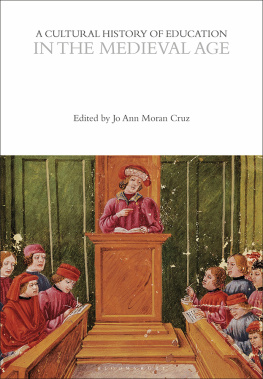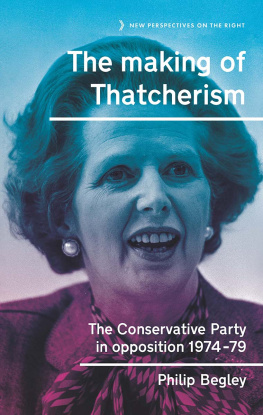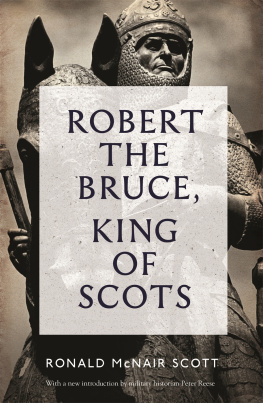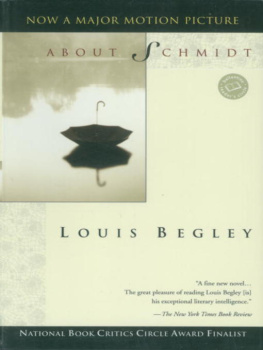Begley Ronald - Medieval Education
Here you can read online Begley Ronald - Medieval Education full text of the book (entire story) in english for free. Download pdf and epub, get meaning, cover and reviews about this ebook. City: New York, year: 2005, publisher: Fordham University Press, genre: Religion. Description of the work, (preface) as well as reviews are available. Best literature library LitArk.com created for fans of good reading and offers a wide selection of genres:
Romance novel
Science fiction
Adventure
Detective
Science
History
Home and family
Prose
Art
Politics
Computer
Non-fiction
Religion
Business
Children
Humor
Choose a favorite category and find really read worthwhile books. Enjoy immersion in the world of imagination, feel the emotions of the characters or learn something new for yourself, make an fascinating discovery.

- Book:Medieval Education
- Author:
- Publisher:Fordham University Press
- Genre:
- Year:2005
- City:New York
- Rating:5 / 5
- Favourites:Add to favourites
- Your mark:
- 100
- 1
- 2
- 3
- 4
- 5
Medieval Education: summary, description and annotation
We offer to read an annotation, description, summary or preface (depends on what the author of the book "Medieval Education" wrote himself). If you haven't found the necessary information about the book — write in the comments, we will try to find it.
Medieval Education — read online for free the complete book (whole text) full work
Below is the text of the book, divided by pages. System saving the place of the last page read, allows you to conveniently read the book "Medieval Education" online for free, without having to search again every time where you left off. Put a bookmark, and you can go to the page where you finished reading at any time.
Font size:
Interval:
Bookmark:
MEDIEVAL EDUCATION
Fordham Series in Medieval Studies

RICHARD F. GYUG, SERIES EDITOR
1. Richard F. Gyug, ed., Medieval Cultures in Contact.
2. Teodolinda Barolini and H. Wayne Storey, eds., Dante for the New Millenium.
3. Allesandro Vettori, Poets of Divine Love: Franciscan Mystical Poetry of the Thirteenth Century.
Edited by
RONALD B. BEGLEY
and
JOSEPH W. KOTERSKI, S. J.


Copyright 2005 Fordham University Press
All rights reserved. No part of this publication may be reproduced, stored in a retrieval system, or transmitted in any form or by any meanselectronic, mechanical, photocopy, recording, or any otherexcept for brief quotations in printed reviews, without the prior permission of the publisher.
Fordham Series in Medieval Studies, No. 4
ISSN 1542-6378
Library of Congress Cataloging-in-Publication Data
Medieval education / edited by Ronald B. Begley and Joseph W. Koterski, S.J.
p. cm.(Fordham series in medieval studies; no. 4)
The essays that make up this volume were originally delivered as lectures at the twentieth annual Medieval Studies Conference at Fordham University, held in March 2000, on Education in the Middle Ages.
Includes bibliographical references and index.
ISBN 0-8232-2425-2 (hardcover)
1. Education, MedievalHistory. I. Begley, Ronald B. II. Koterski, Joseph W. III. Conference on Medieval Studies (20th: 2000: Fordham University) IV. Series.
LA91.M43 2005
370.940902dc22
2004028745
Printed in the United States of America
07 06 05 5 4 3 2 1
First edition

This volume of essays is dedicated to Father Louis B. Pascoe, S.J. Professor Emeritus of Medieval History at Fordham University
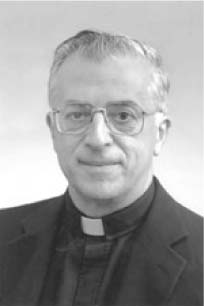
RALPH W. MATHISEN
EVELYN BIRGE VITZ
CHRISTOPHER M. BELLITTO
TANIA D. IVANOVA-SULLIVAN
SCOTT L. TAYLOR
PHYLLIS B. ROBERTS
ADAM J. DAVIS
ANDREAS RTHER
MARK F. JOHNSON
M. MICHLE MULCHAHEY
CHARLES F. BRIGGS
The essays that make up this volume were originally delivered as lectures at the twentieth annual Medieval Studies Conference at Fordham University, held in March 2000, on Education in the Middle Ages. Like the conference, this book is dedicated to Father Louis B. Pascoe, S.J., for many years a professor of medieval history (now professor emeritus) at Fordham and long an inspiration to those who work in this field.
The contributions of Father Pascoe to our understanding of medieval education are well known to generations of students at Ford-ham. The author of books and articles on Jean Gerson and Pierre dAilly, Father Pascoe served on the faculty of history from 1973 and even beyond his retirement from full-time teaching in May 2000. From 1987 to 1990 he was the Chair of the History Department, and he also served as the Acting Dean of Fordham College for a year. He received his Ph.D. in History from the University of California at Los Angeles and has regularly offered graduate courses and seminars on such subjects as Medieval Church History, Medieval Universities, Medieval Monastic and Cathedral Schools, and Medieval Church and University.
In the spirit of his own wide-ranging sense of the varied aspects of education in any age but especially in the medieval period, this volume offers a number of original studies in medieval education, not only in the formal academic sense typical of schools and universities but also in a broader cultural sense that includes law, liturgy, and the new religious orders of the High Middle Ages. Curiously, the field of
The essays in this book are grouped under three headings: (I) The Transmission of Knowledge, (II) Town and Gown, and (III) Mendicant Education. In the Call for Papers the organizers of the conference encouraged contributors to explore the transmission of knowledge in the Middle Ages in various kinds of educational communities, including schools, scriptoria, universities, ateliers, and workshops and to conceptualize other types of educational communities besides those associated with the cathedral schools and the universities.
* * *
The first part of this volume consists of five responses to these two directives. Ralph Mathisen focuses on the transmission of knowledge by looking at rhetorical education in Gaul in the early Middle Ages. Evelyn Birge Vitz responds to the second directive by providing a conceptual basis for understanding the medieval Catholic liturgy as a crucial source of medieval education and formation for a learning community often ignored in discussions of education, for even the illiterate can become quite learned in some important ways.
Conventional wisdom holds that the barbarian incursions into Gaul in the early fifth century brought a rapid end to the traditional school system and to the public subventions funding it. Mathisen argues convincingly that proponents of this thesis tend to explain away evidence that contradicts it by appealing to ad hoc hypotheses. As counter-evidence, he examines references to more than twenty individuals who taught secular subjects in southern Gaul from the fifth to the seventh centuries and discusses the implications of these references for the conventional thesis. Much in the spirit of the work of such scholars as Nicholas Orme and Joanne Moran Cruz, his essay will add evidence about the availability of possibilities for learning secular subjects in late antique Gaul to the outstanding work of these scholars on this topic in England.
By attending both to the variety of medieval liturgical practices and to the physical structures of church buildings, Vitz shows that medieval religious practices addressed the minds and hearts of believers through the corporeal and constituted an indispensable part of their education. Genuflections and blessings and song in consecrated spaces on feast days and ferial days all helped to form their worldview and shape their characters. Stained glass and pilgrimages and fast days provided an education for the illiterate and the literate alike. In short, the liturgy and all the material signs and symbols around and within that liturgy were the school in which most medieval Catholics learned their faith, especially through the way in which the services and the material structures associated with those services cultivated a sense of the presence of God and of the saints, shaped certain spiritual and moral sensibilities, and evoked responses, whether of contrition, love, or some other appropriate feeling or action. Vitz offers the striking examples of Joan of Arc and of Chaucers little clergeon as interesting case studies of the way the process of learning and absorbing what the liturgy was teaching worked. By her concentration on the affective side of education, Vitz adds an important complementary dimension to the current literature, which often focuses on the forms of education that were more formal and academic (see Boynton 2000; Zieman 2003).
Next pageFont size:
Interval:
Bookmark:
Similar books «Medieval Education»
Look at similar books to Medieval Education. We have selected literature similar in name and meaning in the hope of providing readers with more options to find new, interesting, not yet read works.
Discussion, reviews of the book Medieval Education and just readers' own opinions. Leave your comments, write what you think about the work, its meaning or the main characters. Specify what exactly you liked and what you didn't like, and why you think so.

